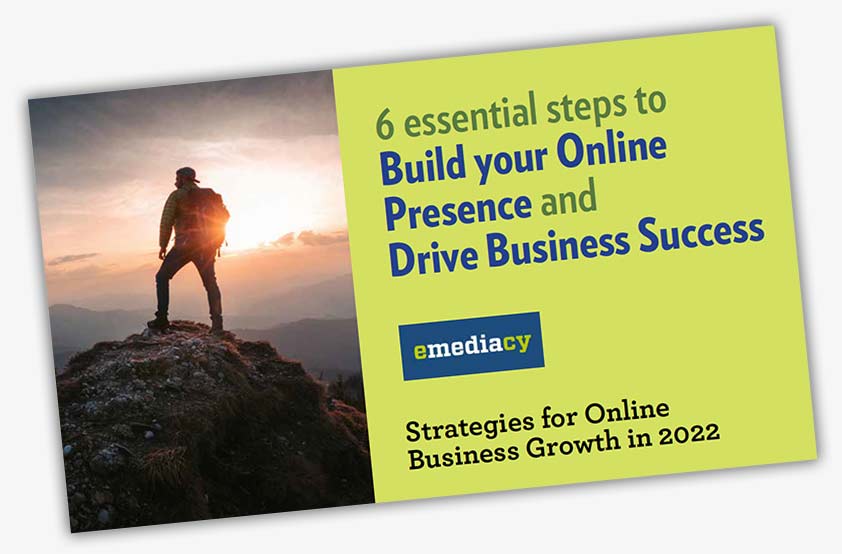What is digital marketing?
Digital marketing is the practice of using digital channels, such as the internet, mobile phones, social media, email, and other digital tools, to market a product or service. Digital marketing uses various strategies, such as search engine optimization (SEO), pay-per-click (PPC) ads, content marketing, influencer marketing, and more, to reach an audience and promote a business or product. This form of marketing allows businesses to target specific audiences and gain valuable insights on customer preferences, behaviors, and interests. It also allows businesses to create personal relationships with customers and build brand loyalty. By utilizing digital marketing, businesses can increase brand awareness, generate more leads, and ultimately increase sales.
How to create and launch a successful digital marketing campaign
Step 1: Choose the Right Marketing Strategy
- Identify Your Audience: The first step in choosing the right marketing strategy for a digital campaign is to identify your target audience. Think about who your audience is, where they are, and what type of information they are looking for when they search for products and services like yours.
- Set Goals and Objectives: Once you have identified your audience, it’s time to set clear goals and objectives for your digital campaign. This will help you determine which strategies will be most effective for achieving your desired results.
- Research Platforms and Tools: Research the different digital marketing platforms and tools available to you. This could include anything from email marketing to content marketing, SEO, and even social media marketing.
- Choose the Most Suitable Platforms: After you’ve identified the digital marketing platforms and tools available to you, it’s time to choose the most suitable ones. Think about which platforms your target audience uses and which are the most effective for achieving your goals.
- Create a Strategy: Once you have chosen the right platforms and tools for your digital campaign, you can start to create a digital marketing strategy. Consider how each platform or tool can be used to reach and engage your target audience, and how to measure the success of your efforts.
- Monitor and Adjust: Once your digital campaign is up and running, it’s important to keep track of the results. Monitor the performance of your campaign and adjust as needed. This will ensure that you are getting the most out of your digital marketing strategy.
Emediacy is a web development and marketing agency that designs websites to get more traffic, engagement, and conversions. Emediacy will design a website that is tailored to your company’s unique requirements and preferences. We work with businesses in Bend, Sisters, Redmond, Prineville, Powell Butte, The Dalles, and Hood River, Salem and Portland.
Emediacy has helped businesses in generating leads, increase conversions, and raise brand awareness. To know how Emediacy can help to grow your business exponentially, schedule a consult today.
Reimagine the Customer Journey
Reimagining the customer journey is essential to launching a successful digital marketing campaign in 2020. With the rapidly evolving customer journey, new media channels, and the demand for immediacy, marketers must understand the complexity of the journey and the channels their target customers are using. By taking an approach that focuses on relationships with customers, companies can build experiences that meet their demands, improve customer experiences and create stronger bonds. Additionally, investing in technology that enhances business relationships can create new opportunities for marketing and help increase customer loyalty. By understanding the customer journey, identifying opportunities for digital transformation, and investing in the right technology, companies can create a successful digital marketing campaign.
Actively Engage Your Audience in Relevant Ways
Step 1: Know Your Audience: It is essential to know the age, location, gender, goals, likes, needs, behaviors, challenges, and pain points of your target audience before creating a digital marketing campaign.
Step 2: Create Engaging Content: To ensure successful engagement with your audience, create content that is high-quality and relevant to their interests. Incorporate visual content such as video and images, and make sure to include accurate and up-to-date statistical facts and sources.
Step 3: Set Goals: Set clear goals before creating a digital marketing campaign so that you know what you want to accomplish. Your techniques for driving sales, for example, will be different from your approach to improve your customer service offering.
Step 4: Know your target audience. To engage your audience effectively and ensure successful digital marketing, you need to understand the needs, likes, interests, behaviors, challenges, and pain points of your target audience. This information can be gathered through market research and utilizing tools such as social listening.
Why do I need a digital marketing campaign?
1. To reach a large number of potential customers
Digital marketing is an effective way to reach a large number of potential customers. By utilizing digital marketing tools such as Google Shopping Ads and brand awareness campaigns, businesses can expand their reach beyond their local markets and reach customers located all over the world. Through the use of social media, businesses can target specific demographics and refine their message to get the most out of their campaigns. Additionally, digital marketing allows businesses to track their campaigns in real-time and adjust them as needed to maximize the effectiveness of their campaigns. By leveraging digital marketing, businesses can reach a large and diverse audience, resulting in increased sales and brand recognition.
2. To increase awareness of your brand
Digital marketing campaigns can help to increase awareness of a brand by engaging with influencers, crafting meaningful content and communications across multiple channels, leveraging social media to target a larger audience and providing valuable insights, feedback and solutions. By focusing on customer service, lead generation, audience expansion and sales, businesses can create a unified, consistent brand perception that resonates with their target market. Additionally, by refocusing their objectives to offer support and reassurances in times of need, businesses can demonstrate empathy and consideration, which can lead to future leads as well as net new customers.
4. Increase website traffic
In order to increase website traffic through a digital marketing campaign, businesses need to evaluate their content creation efficiency and ensure that the content is of high quality and unique. It is also important that the content is up to date with statistical facts and their sources, as well as being relevant and engaging. Furthermore, businesses should make sure to stay in touch with their customers and focus on aspects of the business that provide stable income. Additionally, businesses should have a goal in mind for their social media campaigns and create a social media strategy towards reaching that goal. Understanding the emerging technologies and audience behaviors is also crucial for maximizing website traffic. By putting the necessary effort and resources into crafting content that resonates with their target audience, businesses can be successful in increasing website traffic through effective digital marketing campaigns.
5. Increase website conversions
A digital marketing campaign can be an effective way to increase website conversions. It starts with a strong lead nurturing strategy that takes into account the data gathered from website visits, form submissions, and social media. By monitoring social media, marketers can identify what interests their leads, the keywords they’re searching for, the influencers they follow, the events they’re attending, and the content they’re engaging with. This deepens the understanding of their prospects and allows them to tailor their messages in a more timely and relevant way.
Content creation is also critical to a successful digital marketing campaign. Businesses should focus on creating high-quality, unique content that meets the needs of their target customers and aligns with their search intent. Content should also include statistical facts and their sources to build trust with prospects and search engines. Finally, marketers should leverage emerging technologies, such as augmented reality and messaging apps, to deliver an engaging experience that can help increase conversions.
Experience the power of website design and Content Marketing SEO services – contact Emediacy today!
6. Develop your brand’s customer loyalty
A digital marketing campaign can be a powerful tool to help develop a brand’s customer loyalty. By engaging with customers on social media channels and providing valuable content and solutions to their needs, businesses can demonstrate how important they are and build trust. Additionally, by utilizing data insights through social listening and understanding the needs of customers, businesses can tailor their marketing approach and develop a flywheel to overcome friction points in business growth.
Furthermore, customers today want to be treated as individuals and appreciate it when companies recognize their name and purchase history and recommend products based on past purchases. Customers are also eager for organizations to use their data to provide them with a personalized experience. All of these strategies have shown to increase customer loyalty and satisfaction, as well as drive sales. Therefore, investing in a digital marketing campaign that focuses on developing relationships with customers is key in increasing customer loyalty and satisfaction.
7. Increase website traffic from social media
A digital marketing campaign can be an effective way to increase website traffic from social media. By creating a comprehensive social media strategy and implementing it, businesses can tap into the potential of these networks to reach new audiences, build authority, and drive sales. The key is to ensure that your brand’s presence on social media is managed with quality, consistency, and engaging content that can excite and entertain viewers. Social listening and data insights can shape your marketing approach and the flywheel you’re developing to overcome friction points in business growth. This will help to identify keywords, influencers, events, and other touchpoints that can be used to create personalized messages that are timely and tailored to the context of your leads’ conversations. By leveraging this data and insights, businesses can create a meaningful presence across the web that demonstrates their value and solutions, leading to increased website traffic.
8. Increase website traffic from search engine optimization
A digital marketing campaign that leverages search engine optimization (SEO) can be highly effective in increasing website traffic. While SEO efforts can take time to be effective, the results can be worth the wait. Here is a step-by-step guide to optimizing your website and increasing website traffic with SEO:
- Create high-quality content: The key to successful SEO is creating content that is both relevant and engaging. This includes optimizing your title tags and meta descriptions to ensure they contain relevant keywords and phrases that your target audience is searching for.
- Research and analyze keywords: To optimize your website for search engines, you will need to determine which keywords and phrases are most relevant to your business. This will help you create content that is more likely to rank higher in search results.
- Optimize website structure: Website structure plays a major role in SEO. To ensure that your website is properly optimized, you should make sure that there are no broken links, meta tags are updated, and page titles are clearly labeled.
- Monitor website performance: After you have optimized your website, it is important to monitor its performance. This can be done by using Google Analytics or other analytics tools to see how visitors are using your website and where they are coming from.
- Take advantage of social media: Social media can be used to engage with your customers and build relationships. You can also use it to promote your website, share content, and track how users are interacting with your website.
By following these steps, you can create an effective SEO strategy that will help your website rank higher in search engine results and increase website traffic.
9. Generate brand awareness
A successful digital marketing campaign can generate brand awareness by utilizing various digital channels to reach potential customers. These channels can include Google Shopping Ads, brand awareness campaigns, and social media channels. Through these channels, businesses can create content that is valuable to viewers and followers, as well as advertise their products or services. Additionally, businesses can use data insights to shape their marketing approach and create content that appeals to their desired target audience. Doing so will enable businesses to build a consistent presence across the web, demonstrating their importance and providing solutions to their customers. Ultimately, this strategy can influence customer buying decisions and increase brand recognition, thus helping to generate more sales and expand the reach of the company.
10. Generate leads and increase sales
Digital marketing campaigns, when executed properly, can have a significant impact on lead generation and sales. By leveraging the immediacy of social media, businesses can create powerful campaigns that drive leads directly to their website. This can involve automating social media responses, creating targeted content, identifying influencers, and engaging with customers in real-time.
In addition, segmentation and lead scoring using website data and social media insights can help businesses target the right leads at the right time. Through segmentation, businesses can identify the interests and needs of leads, enabling them to create content and campaigns tailored to the right audience. Likewise, lead scoring can help businesses prioritize leads based on their level of engagement and relevancy to a specific product or service.
By leveraging the immediacy of social media, segmentation, and lead scoring, businesses can create powerful campaigns that generate leads and increase sales.















